Canada, UK, Ireland, Australia and New Zealand are strongly associated with the English language, but they still like to compete for the best international feature Oscar. Screen looks at how these countries have fared in the category over the years, and their approach to the award.
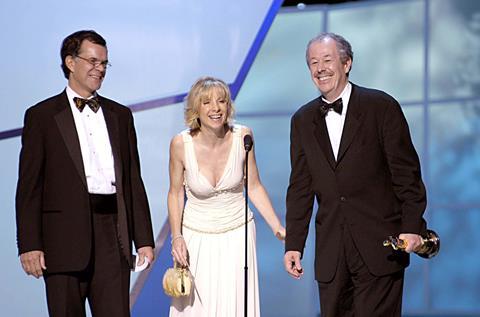
The Academy Award for international feature film, until the 2020 ceremony known as best foreign-language film, is the one Oscars category that is not strongly associated with the English-speaking nations of the world. And one territory that is specifically excluded from participating is the biggest English-speaking nation of all: the US. Instead, the international feature Oscar usually sees around 90 countries across the globe each submit one film to represent their nation.
Most films produced in the UK, Ireland, Australia and New Zealand are in the English language, and that is also the case in Canada, despite the strong film industry in French-speaking Quebec. But these English-speaking nations regularly participate in Oscar’s international feature category, albeit only since 2012 in the case of New Zealand. Eligible films must have at least 50% of dialogue in a foreign language — which, since the 2007 awards, no longer has to be in an official language of the submitting country.
The abolition of that rule has expanded the choice for all nations, and this year the UK has taken advantage by submitting Jonathan Glazer’s The Zone Of Interest, which is set in Auschwitz and is in German and Polish. The submission could give the country its first ever win for this award — following two previous nominations with Welsh-language films.
A win for The Zone Of Interest would also represent a first for an English-speaking nation since Canada scooped the foreign-language film Oscar with Denys Arcand’s The Barbarian Invasions in 2004. (While English is spoken widely in other countries such as South Africa and Singapore, for the purposes of this feature we are focusing on nations where English is overwhelmingly the most widely spoken language.)
But how are the films chosen each year by these five English-speaking nations, what are the factors that are considered by the country’s selection committee, and what support — if any — is available to producers and sales agents to help campaign and engage the attention of voters? Screen International takes a deeper dive into the international feature submission process in each of these territories.
Canada
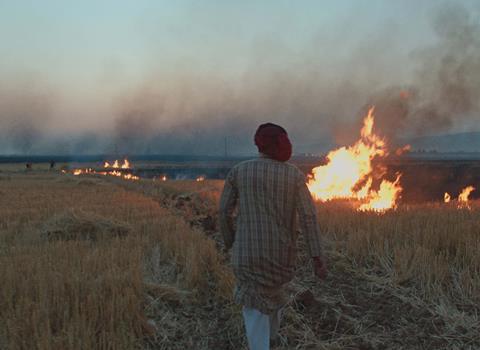
Canada’s latest Oscar submission, documentary Rojek, is already benefiting from the country’s more diverse approach.
With thriving film industries in both its official languages — English and French — Canada has a long history of competing in the best international feature category. Beginning with its entry for the 1972 Oscars, Canada has submitted 49 films in an almost unbroken run. To date, the nation has scored seven nominations — most recently for 2013 awards entry War Witch — converting to one Oscar win, with The Barbarian Invasions in 2004. A further three submissions (the latest being It’s Only The End Of The World for 2017) have made the category shortlist since that stage was introduced in 2007, but none of these have been nominated.
The vast majority of Canada’s submissions have been Quebec productions in French, the first language for more than 20% of Canadians (exceptions have included Hindi-language drama Water and Atanarjuat: The Fast Runner in Indigenous language Inuktitut).
But like the country itself, Canada’s submissions are becoming more diverse. Last year, Eternal Springbecame the nation’s first documentary, first animated and first Mandarin-language submission. And this year Rojek, a multi-language documentary about incarcerated members of Islamic State from Turkey-born, Quebec-raised filmmaker Zayne Akyol, was picked as the submission from an unusually large field of 28 entries (compared to 16 last year and 10 the year before).
The pan-Canadian committee that selects the country’s submissions traditionally has representatives from key government agencies and national film industry associations, with Telefilm Canada (the state-owned Crown corporation supporting the country’s audiovisual industry) organising and providing a non-voting chairperson.
Because of a new US Academy rule requiring selection bodies to have at least 50% film practitioners (artists and/or craftspeople), this year’s Canadian committee was smaller than usual, with a different slant. The 16 voting members included representatives from French-language actors guild Union des Artistes, the Directors Guild of Canada and filmworkers union Alliance Quebecoise des Techniciens de l’Image et du Son (AQTIS), as well as delegates from the Academy of Canadian Cinema and Television, Ontario Creates, the Indigenous Screen Office and other organisations.
The change “enriched the whole evaluation process”, says Francesca Accinelli, the Telefilm Canada vice president of promotion, communications and international relations who has chaired the committee for the past six years. “To have craftspeople around the table has been a really powerful shift.”
Accinelli describes the selection process, in which jurors are asked to consider a film’s international competitiveness as well as its quality, as “the Olympics of Canadian film”. Box-office performance, festival appearances and representation by a US distributor or international sales agent can all be factors, Accinelli says, as well as whether committee members “feel there is going to be a connection” with Oscar voters.
Four years ago, Telefilm Canada proposed eligibility criteria — including selection by at least one of the big international festivals — for films wanting to be considered as Canada’s submission. Industry response quickly led to the idea being dropped, meaning that any film meeting the US Academy’s theatrical release requirement (in the home country, or in another country other than the US) can be entered, although the proposed measures remain part of the process as what Telefilm calls “evaluation criteria”.
Besides the kudos of an awards season run, the benefits available to projects selected to represent Canada in the Oscar race include heightened visibility and up to $73,000 (c$100,000) in promotional support from Telefilm Canada, with another $29,000 (c$40,000) for submissions that make the shortlist of 15 titles.
Sylvain Corbeil, who produced Rojek for his Montreal company Metafilms, says that since being announced as the Canadian submission, the film (sold internationally by Andana Films and picked up for the US by Icarus Films) has had a successful theatrical re-release at home and attracted offers from some international buyers.
Rojek was also invited to screen as a US premiere at last month’s DOC NYC festival. Before being selected by Canada, Corbeil suggests, “I think a lot of US festivals had cold feet” because of possible comparisons to controversial Sundance 2022 entry Jihad Rehab (aka The Unredacted).
Now, Accinelli reports, Telefilm Canada is consulting with its counterparts in other countries, as well as with the Canadian industry, about how to update the selection process to maximise the support. The idea, Accinelli says, is to put “a stronger emphasis on once you select the film, how are we all going to come together to exploit it”.
John Hazelton
UK and Ireland
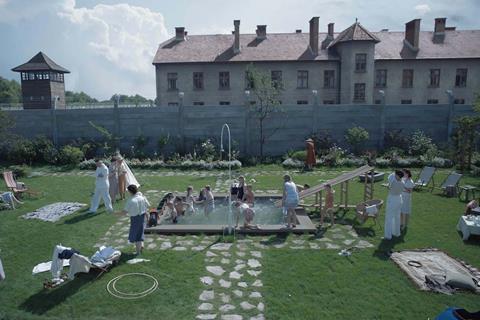
UK entry The Zone Of Interest and Irish submission In The Shadow Of Beirut have undergone a tough selection process before going in front of the Academy.
Jonathan Glazer’s Cannes award-winning Holocaust drama The Zone Of Interest marks the UK’s 20th submission to the international feature Oscar. As ever, Bafta’s film committee was tasked with selection, and this year’s board, chaired by Anna Higgs for the third year running, included composer Nainita Desai, film critic Jason Solomons and We Are Parable co-founder Anthony Andrews — though former committee members with specific expertise are often drafted in too.
To be eligible for the best international feature Academy Award, a film must be released in its home country by October 31, or else in another country other than the US. Since The Zone Of Interest does not reach UK cinemas until next February, A24 arranged a seven-day qualifying release in Poland, beginning October 27.
First submitting at the 1992 awards, the UK has been nominated twice over the years, for Paul Turner’s Welsh anti-war biopic Hedd Wyn in 1994 and Paul Morrison’s Welsh romance Solomon And Gaenor in 2000.
Welsh-language films have dominated the UK’s submissions, with nine entries partially or entirely featuring the Celtic tongue — two of which hailed from Ceri Sherlock in 1996 and 1999. Turkish-language films have been submitted twice, with Nihat Seven’s Little Happiness in 2015 and Chloe Fairweather’s documentary Dying To Divorce in 2022, as have Persian-language features in the form of Babak Anvari’s 2017 entry Under The Shadow and last year’s submission Winners from Hassan Nazer.
No Scottish-language features have yet been submitted, although in 2008 Simon Miller’s Seachd: The Inaccessible Pinnacle was put forward for consideration (as was Ashley Way’s Welsh-speaking drama Calon Gaeth). Bafta chose not to submit either, instead opting out of that year’s international race altogether. The decision resulted in Seachd producer Chris Young publicly withdrawing his Bafta membership and the issue was raised in Scottish parliament alongside calls for nations to have the ability to enter separately.
Higgs says Bafta is looking for “creative excellence” when making its decision and “proactively reaches out to funders, distributors and festival programmers” to help build the shortlist and ensure the widest possible selection is considered. After a film is chosen, the organisation is not involved in the awards campaign, but producers can receive support from other industry bodies.
Last year, for example, Winners was awarded around $69,000 (£55,000) from Screen Scotland towards campaign costs between November 2022 and January 2023. “Without the fund’s support, we could not have campaigned at Ampas/Bafta level,” says the film’s Scotland-based producer Paul Welsh. “I think the benefits of that campaign continue to pay dividends in the UK and internationally.”
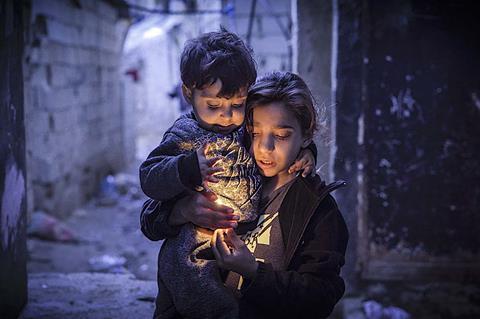
Ireland will be hoping to repeat the successes of last year’s international feature Oscar entry, Colm Bairead’s The Quiet Girl, which went on to mark the country’s first nomination in the category. This year’s submission, Stephen Gerard Kelly and Garry Keane’s Lebanon-set, Arabic-language documentary In The Shadow Of Beirut, has high-profile backing in the form Hillary and Chelsea Clinton, who executive produced through their HiddenLight banner.
Selected by the Irish Film and Television Academy (IFTA), the committee included filmmakers Jim Sheridan and Frank Berry along with actress Cathy Belton and Derry Girls producer Brian Falconer. There are usually only a small number of films up for consideration, according to IFTA CEO Aine Moriarty, who is optimistic entries will grow. “More funding is being made available for the production of films with predominantly Gaelic — native Irish language,” she says. The committee is always looking for a film with “strong storytelling ability that can transcend the boundaries of language to connect with a global audience”, Moriarty adds.
First making its leap into the international feature category in 2008, with Tommy Collins’ Irish- and English-language drama Kings, IFTA has since submitted a further eight times. Before its 2023 nomination, the country came the closest to glory in 2016 when Paddy Breathnach’s Spanish-language feature Viva made the category shortlist. It is one of three films entered in a language other than Irish, alongside 2012’s Serbo-Croatian drama As If I Am Not There from Juanita Wilson and 2020’s Arabic-language documentary Gaza.
Unlike Bafta, IFTA works closely with the entered film’s producers to maximise its visibility to voting members through hosted screenings and discussions across the UK, Ireland and US. Beyond that, producers can access marketing grants from the Irish government and Europe in order to hire an international marketing PR familiar with the world of awards campaigning.
Ellie Calnan
Australia & New Zealand
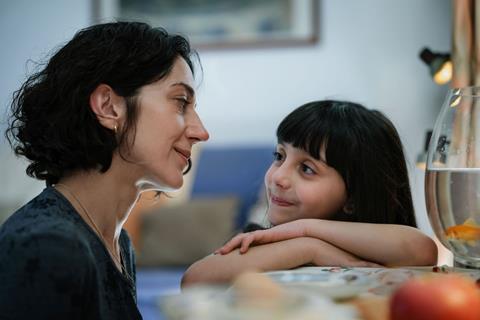
Australia submitted Persian-language Shayda to this year’s race, but hopes are high that more Indigenous films could be represented at the Oscars.
Australia first submitted a film for consideration in the international feature Oscar category ahead of the 1997 awards, and has done so 15 times since — nine times in the last decade. Of those, only Warwick Thornton’s Samson And Delilah (which is in the Indigenous language of Warlpiri) and Martin Butler’s Tanna (in the Nauvhal language and set on the titular Vanuatu island) were shortlisted; Tanna was subsequently nominated in 2017.
New Zealand has entered a total of seven films, beginning with the 2012 awards. It has never been nominated or shortlisted, and will not be submitting this year because no film was eligible.
Australia has submitted Noora Niasari’s Shayda for the upcoming awards, in which a young Iranian mother and her six-year-old daughter find refuge in a women’s shelter. “It’s a brilliant film that deserves the success it’s already had, and an international profile can only help the campaign,” says Julie Kalceff, filmmaker and chair of the selection committee.
Kalceff adds that the same considerations are applied to the deliberation process every year. “You want strong, complex, three-dimensional characters and an engaging narrative for the whole 90 to 120 minutes,” she says. “Specifically, you’re always looking at how the cultural group is being represented. Is the story told with authenticity? Does the filmmaker have insight? Do the performances ring true?”
Kalceff describes the performances in Shayda as “beautiful”, pointing in particular to young non-professional actress Selina Zahednia, who plays Shayda’s daughter Mona. “I loved seeing a child actor so raw and authentic. A child actor or non-actor can sometimes pull you out of the story. Not here.”
This is Kalceff’s third year as chair. For each of those years there has only been one eligible film, largely due to the US Academy’s 50% non-English dialogue rule. While more Indigenous films are being made, most are predominantly in English with some Indigenous dialogue.
When Pomegranates Howl was put forward in 2022, while You Won’t Be Alone was submitted last year — after complications were resolved. “The film was released in the US before Australia, its country of origin,” explains Alone producer Kristina Ceyton. “We applied for an exemption iterating exceptional circumstances, including Covid and the pressure it put on the release calendars with so many films backlogged for release.”
When new in the role, Kalceff says she was surprised and inspired that there was one film a year that met both the 50% language rule and the seven-day exhibition requirement. She did not expect that many. She suspects many Australian filmmakers do not know about the rule — if they did, they might make different decisions when developing films.
“The Academy’s eligibility rules require a film to be released in the country of origin no earlier than December 1, 2022 and no later than October 31, 2023,” says New Zealand Film Commission (NZFC) head of marketing Jasmin McSweeney. “Lee Tamahori’s feature The Convert meets the [50%] non-English rule, but will not release in New Zealand until the first quarter of 2024.”
NZFC each year appoints the selection committee, known as the jury. Last year’s jury — which chose Tearepa Kahi’s Muru — comprised producer Carthew Neal, writer Fran Walsh, actress Keisha Castle-Hughes, film editor David Coulson, costume designer Ngila Dickson, art director Grant Major and directors Niki Caro, Peter Jackson and Taika Waititi; then-acting NZFC CEO Mladen Ivancic was chair. Like Screen Australia, NZFC has a pot of money available for international marketing.
Screen Australia appoints a selection committee — usually comprising active creatives, although Sydney Film Festival director Nashen Moodley has served in the past — and checks eligibility but is otherwise hands-off. Harry Avramidis, senior manager for international and business development, runs the show.
Not every Australian committee member believes a film should be submitted just because it is the only one eligible. Kalceff, however, does. “Anything that can be done to promote a film, make people realise it’s out there and assist it to find audiences,” she asserts.
For this year’s committee — including writer Kodie Bedford, writer/actor Tony Briggs, writer/director Natalie Erika James and producer Liz Kearney alongside Kalceff — the decision to submit Shayda was unanimous.
Sandy George

























No comments yet